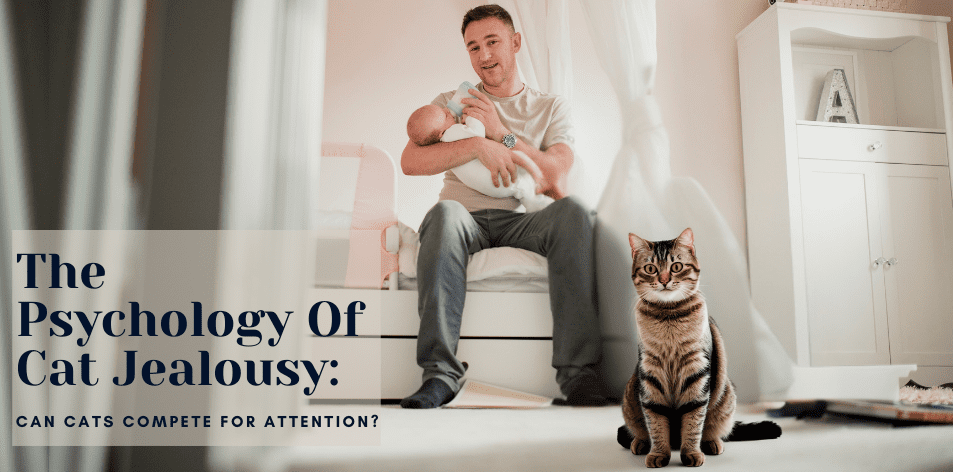Understanding Feline Emotions & Behavioural Shifts
When we think of jealousy, we often attribute it to humans. Yet, any cat owner who has introduced a new pet, welcomed a baby, or entertained frequent guests will tell you—cats can seem just as emotionally reactive. But do cats truly get jealous, or are their behaviours a reflection of territorial instincts and attachment needs?
Cats & Emotional Complexity
Cats are far more emotionally sophisticated than many give them credit for. While they may not process jealousy in the exact way humans do, they can feel displaced, insecure, or even threatened when their bond with their human feels challenged.
Common Triggers of Cat Jealousy
1. New Pets – A new cat or dog can disrupt the household balance, sparking territorial reactions.
2. Newborn Babies – The sudden shift in attention and routine can leave cats feeling overlooked.
3. Guests and Visitors – Extra people in the home may make some cats clingier or more withdrawn.
4. Objects of Affection – Even laptops, phones, or hobbies can become “competition” for your cat’s attention.
Signs Your Cat May Be Jealous
* Pawing between you and the object of your attention.
* Vocalising excessively when you engage with someone else.
* Displaying clingy behaviour like sitting on your lap more often.
* Showing aggression—hissing, swatting, or marking territory.
* Withdrawal, sulking, or avoiding interaction altogether.
How to Ease Jealousy in Cats
1. Maintain Routine – Cats thrive on predictability. Stick to feeding and play schedules.
2. Create Safe Spaces – Ensure your cat has quiet areas where they feel secure.
3. Positive Reinforcement – Reward calm behaviour around new pets or people.
4. Equal Attention – Spend quality one-on-one time with your cat daily.
5. Introduce Gradually – New pets or babies should be introduced slowly, with patience and reassurance.
Do Cats Really Compete for Love?
While cats may not consciously compete the way humans do, their behaviour often shows they crave reassurance and connection. Their reactions stem from a strong bond with their human, and jealousy can be their way of saying, “Don’t forget me.”
Cat jealousy is less about rivalry and more about security. By understanding their emotional needs and responding with consistency and affection, you can help your feline companion adjust smoothly to new circumstances. After all, when cats feel secure, they don’t need to compete—they simply thrive.

